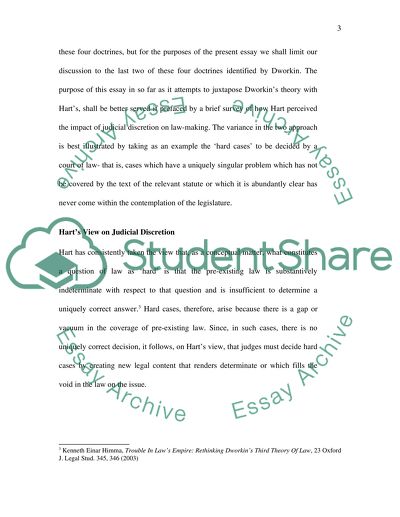Cite this document
(Dworkin and Legal Positivists Essay Example | Topics and Well Written Essays - 1500 words, n.d.)
Dworkin and Legal Positivists Essay Example | Topics and Well Written Essays - 1500 words. https://studentshare.org/law/1538384-dworkin-and-legal-positivists-seek-to-provide-guidelines-for-impartial-judicial-decision-making-but-do-so-in-different-ways-and-with-different-results-discu
Dworkin and Legal Positivists Essay Example | Topics and Well Written Essays - 1500 words. https://studentshare.org/law/1538384-dworkin-and-legal-positivists-seek-to-provide-guidelines-for-impartial-judicial-decision-making-but-do-so-in-different-ways-and-with-different-results-discu
(Dworkin and Legal Positivists Essay Example | Topics and Well Written Essays - 1500 Words)
Dworkin and Legal Positivists Essay Example | Topics and Well Written Essays - 1500 Words. https://studentshare.org/law/1538384-dworkin-and-legal-positivists-seek-to-provide-guidelines-for-impartial-judicial-decision-making-but-do-so-in-different-ways-and-with-different-results-discu.
Dworkin and Legal Positivists Essay Example | Topics and Well Written Essays - 1500 Words. https://studentshare.org/law/1538384-dworkin-and-legal-positivists-seek-to-provide-guidelines-for-impartial-judicial-decision-making-but-do-so-in-different-ways-and-with-different-results-discu.
“Dworkin and Legal Positivists Essay Example | Topics and Well Written Essays - 1500 Words”. https://studentshare.org/law/1538384-dworkin-and-legal-positivists-seek-to-provide-guidelines-for-impartial-judicial-decision-making-but-do-so-in-different-ways-and-with-different-results-discu.


